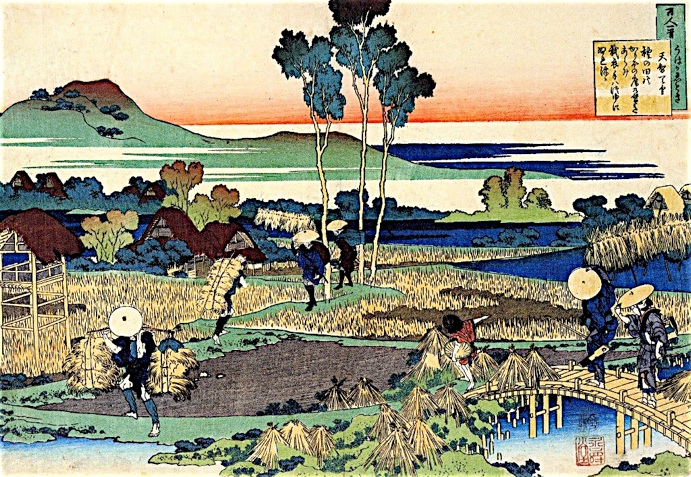天智天皇


秋の田の
かりほの庵の
苫をあらみ
わが衣手は
露にぬれつつ

Hokusai
てんじてんのう
あきのたの
かりほのいおの
とまをあらみ
わがころもでは
つゆにぬれつつ
Emperor Tenji
A rush-mat roofing
Covers the harvest-hut
On the autumn rice-field
And my sleeves are getting wet
With the dew drops dripping through.
Emperor Tenji (626 - 672), also known as Emperor Tenchi, was the 38th emperor of Japan. His earlier names were Prince Katsuragi and Prince Naka no Oe. The years of Emperor Tenji's reign spanned 661 through 671. By murdering Soga no Iruka he destroyed the Soga clan, and is considered the progenitor of the imperial line. He took part in the Taika Reform and published a legal code, called the Omi-ryo; these centralised power and order in imperial hands. Several poems are attributed to him.
According to some commentators this poem expresses the sympathy the emperor had for the peasants; but this interpretation can be disputed, as the attribution of this poem to Tenji is not at all sure. But it is likely that the compiler of this collection, Fujiwara no Teika, saw this first poem in his anthology as a tribute to the emperor who gave his ancestors the surname ‘Fujiwara’. Some see it as a complaint about homesickness or the decline of imperial authority.
There is a controversy about the word kariho; as a contraction of kari-iho it is a temporary hut, but viewed as a pivot word it can also mean ‘reaped ears of grain’.
In Hokusai’s print there is no emperor in sight anywhere. This poem could also point out the difference between peasant and poet, the unease with the common plight. The hut in the poem is like the one on the left on the woodcut.

Click icon for
next poem
